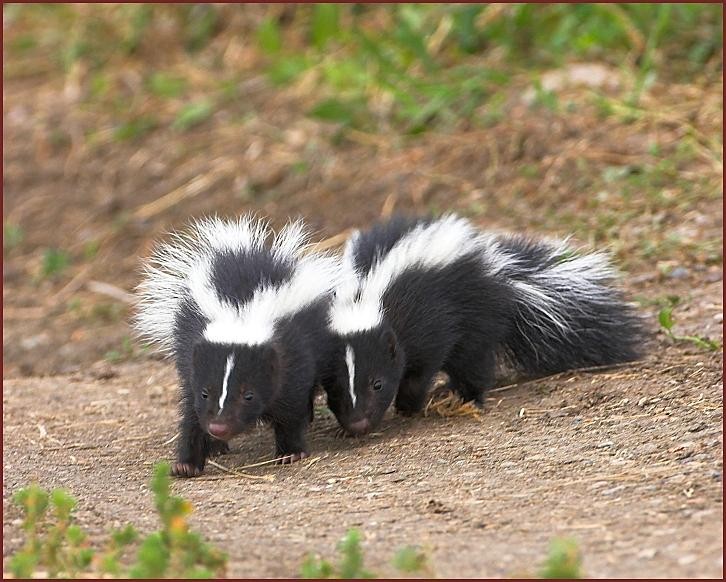|
Hi Friend,
Hello and Good Morning to you and all of your significant others.
If you have a middle aged to older pet, you should be giving additional nutrients to support and potentially boost your dog or cat's immune system.

Ultimate Canine and Ultimate Feline Health Formulas contain an immune support complex of colostrum, probiotics, maitake, aloe.
You can get it here:
http://www.thedogsupplement.com
http://www.thecatsupplement.com
------------------------------------------
Rabies Outbreak...
------------------------------------------
Here is the news HEADLINE that I recently read:
"Cat is 100th rabies case in Arkansas for 2013"
The story goes...
A cat in Boone County has tested positive for rabies, marking the 100th rabies case so far this year. The cat's owners reported the cat had been in a fight with an unidentified animal in June and the owners had been nurturing the cat back to health. The cat was reported as non-aggressive until a few hours before it died, which is unusual since many rabid animals display aggressive behavior several days before death.
"We've seen a high number of rabies cases this year," Gary Wheeler, MD, Branch Chief of Infectious Disease at the Arkansas Department of Health said. "This case drives home the point that people need to have their family pets vaccinated, because of the contact and exposure this family faced."
My initial reaction was of concern, and perhaps I should be encouraging more rabies vaccination. But the specifics of the story are different.
This case marks the 100th rabid animal in the state so far this year, including 91 skunks, 3 bats, 2 cats, 2 dogs, 1 cow and 1 horse.
Yes 2 cats, 2 dogs, 1 horse ( 5 COMPANION ANIMALS) and 91 skunks..

Not nearly as EPIDEMIC as 1st reported.
Clearly rabies is endemic in the skunk population, and that would be the primary risk to dogs. More likely the 2 cats that were diagnosed with rabies contracted it via bats..
----------------------------------------------------------------------
Some Common Sense Advice ..( according to me)
-----------------------------------------------------------------------
Rabies is easily preventable with vaccines, but there are concerns as to the timing of the vaccine, the vaccine side effects, and how often it needs to be given. Most veterinarians advise giving the first rabies vaccine at 12 weeks, followed up with a booster 1 year later, then to be given every 1-3 years therafter. Rabies vaccine is associated with a number of serious diseases, and these include: autoimmune diseases such as hemolytic anemia, polyarthritis, thyroid disease, anaphylactic shock, epilepsy, vaccine injection site cancer ( fibrosarcoma), and polyneuropathy (the muscles/nerves are affected).
The risks of the vaccines need to be weighed against the risks of getting the disease. Based on the real health risks, my suggestions are to wait until your dog or cat is 6 months of age before giving the first rabies vaccine. Do not give it in combination with other vaccines, and avoid giving it if your pet is sick in any way. Depending on provincial or state laws, (as in many require you to have the rabies vaccine at certain intervals), I would advise having a rabies titre check performed by your veterinarian at 1 year, and only revaccinating if the titre level is not deemed to be protective. Immunologist Dr. Ronald Schultz’s has studies showing that dogs have antibody titres with rabies immunity 7 years after vaccination.
Rabies is a very serious disease in pets, but the risks of your dog or cat contracting it is extremely low. The rabies vaccine itself is one of the more potent veterinary vaccines, with a host of side effects. As a pet owner, you should carefully consider vaccinating your pet for this disease, giving it as infrequent as possible, and discussing the use of antibody titres with your veterinarian. Your pet may be fully protected and no longer need the vaccine.
Heal Your Pet At Home!
Best Wishes,
Dr Andrew Jones, DVM
P.S. So do you or DON'T you vaccinate?
A hard question, and I really think it needs to be based on your area. But there is some strong evidence suggesting 1 rabies vaccine can last 7-10 years, not the 1-3 years that have been touted. I encourage you to talk with your veterinarian, and look at titre testing.
P.P.S. I have stopped vaccinating all my pets- for various reasons.
They are all senior, they have all had vaccines in the past, and my area has never reported a case of rabies.
What I am doing is varying their food with some home diets, some raw, and regular supplementing in part for their immune system.
You can get a 50% TRIAL bottle here:
http://www.thedogsupplement.com
http://www.thecatsupplement.com
   
Heal Your Pets At Home!
Best Wishes,
Dr Andrew Jones

DISCLAIMER: This information is for educational purposes only and is not intended to replace the advice of your own veterinarian. Dr Andrew Jones resigned from the College of Veterinarians of B.C. effective December 1 2010, meaning he cannot answer specific questions about your pet's medical issues or make specific medical recommendations for your pet.
PRIVACY POLICY: We will never rent, sell, loan, provide, barter, exchange or in any way make available your personal information to others. You can unsubscribe or change your email address at any time using the links at the bottom of this email.
Copyright 2013 Four Paws Online Ltd.
Tel: 1-800-396-1534
Fax: 1-888-398-1378
www.theonlinevet.com
support@fourpawsonlineltd.com
|